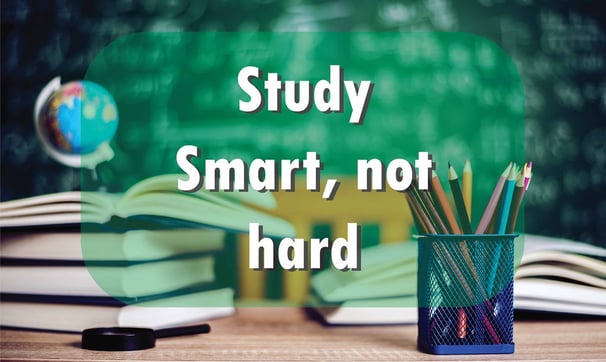Study Smarter, Not Harder: Proven Hacks and Productivity Tips for Students
EDUCATION


In today’s fast-paced world, students are often juggling academic pressures, extracurricular activities, and personal commitments. The constant demand to excel can lead to stress and burnout if not managed effectively. But what if you could achieve more by studying smarter, not harder? In this post, we’ll explore proven study hacks and productivity tips to help you maximize your learning potential and stay ahead.
1. The Science of Effective Studying
Pomodoro Technique
The Pomodoro Technique is a time management method that breaks your work into 25-minute intervals called “Pomodoros,” separated by 5-minute breaks. After four intervals, take a longer 15-30 minute break. This method helps maintain focus while avoiding burnout. Try apps like Focus Booster or Pomodone to implement this technique.
Active Recall
Instead of passively rereading notes or textbooks, actively test yourself on the material. Research shows that retrieving information strengthens memory. Tools like flashcards or apps like Quizlet can make active recall more engaging.
Spaced Repetition
Revisit material at increasing intervals over time to reinforce memory. Platforms like Anki automate this process, ensuring you review concepts before you forget them.
2. Setting Up a Productive Study Environment
Minimize Distractions
Turn off notifications and use apps like Forest to stay focused. If you’re studying in a noisy environment, consider noise-canceling headphones or apps like Noisli.
Lighting and Ergonomics
Good lighting reduces eye strain, while an ergonomic chair and desk setup prevent discomfort. Natural light is ideal, but if unavailable, opt for bright, white light bulbs.
Decluttering
A clean, organized workspace can reduce mental clutter. Keep only essential items on your desk to maintain focus.
3. Mastering Time Management
The Eisenhower Matrix
Categorize tasks into four quadrants based on urgency and importance:
Urgent & Important: Do these immediately.
Not Urgent & Important: Schedule these.
Urgent & Not Important: Delegate these.
Not Urgent & Not Important: Eliminate these.
Time Blocking
Allocate specific time slots for studying, breaks, and leisure activities. Tools like Google Calendar or Notion can help you visualize your schedule.
Avoiding Procrastination
Use the 2-Minute Rule: If a task takes less than two minutes, do it immediately. For larger tasks, start with a small, manageable step to build momentum.
4. Leveraging Technology for Productivity
Best Apps for Studying
Notion: For organizing notes and tasks.
Grammarly: To improve your writing.
Focus@Will: For focus-enhancing music.
Digital Flashcards
Apps like Brainscape or Cram make it easy to create and review flashcards anywhere.
Noise-Canceling Apps
Boost concentration with apps like Brain.fm that provide focus-enhancing background music.
5. Healthy Habits for Better Focus
Sleep Hygiene
Aim for 7-9 hours of sleep each night to enhance cognitive performance. Stick to a consistent sleep schedule and avoid screens an hour before bed.
Nutrition Tips
Fuel your brain with foods like:
Nuts: Rich in omega-3 fatty acids.
Berries: Packed with antioxidants.
Green Tea: Contains caffeine and L-theanine for focus.
Exercise
Even short workouts, such as a 10-minute walk, can boost focus and memory. Consider yoga or stretching to relieve tension during study breaks.
6. Social Strategies for Studying
Forming Study Groups
Collaborate with peers to share ideas, clarify doubts, and stay motivated. Ensure the group stays focused and doesn’t become a social hour.
Explaining Concepts to Others
Teaching someone else is one of the best ways to solidify your understanding. It forces you to process and simplify complex information.
Accountability Partners
Find a study buddy to check in with regularly. This mutual accountability can keep you on track and motivated.
Studying smarter is all about leveraging efficient techniques and maintaining a healthy balance. By applying these study hacks and productivity tips, you can achieve your academic goals without overwhelming yourself. Remember, consistency is key—start small, experiment with these strategies, and find what works best for you.
Have your own study hacks to share? Drop them in the comments below—we’d love to hear from you!
